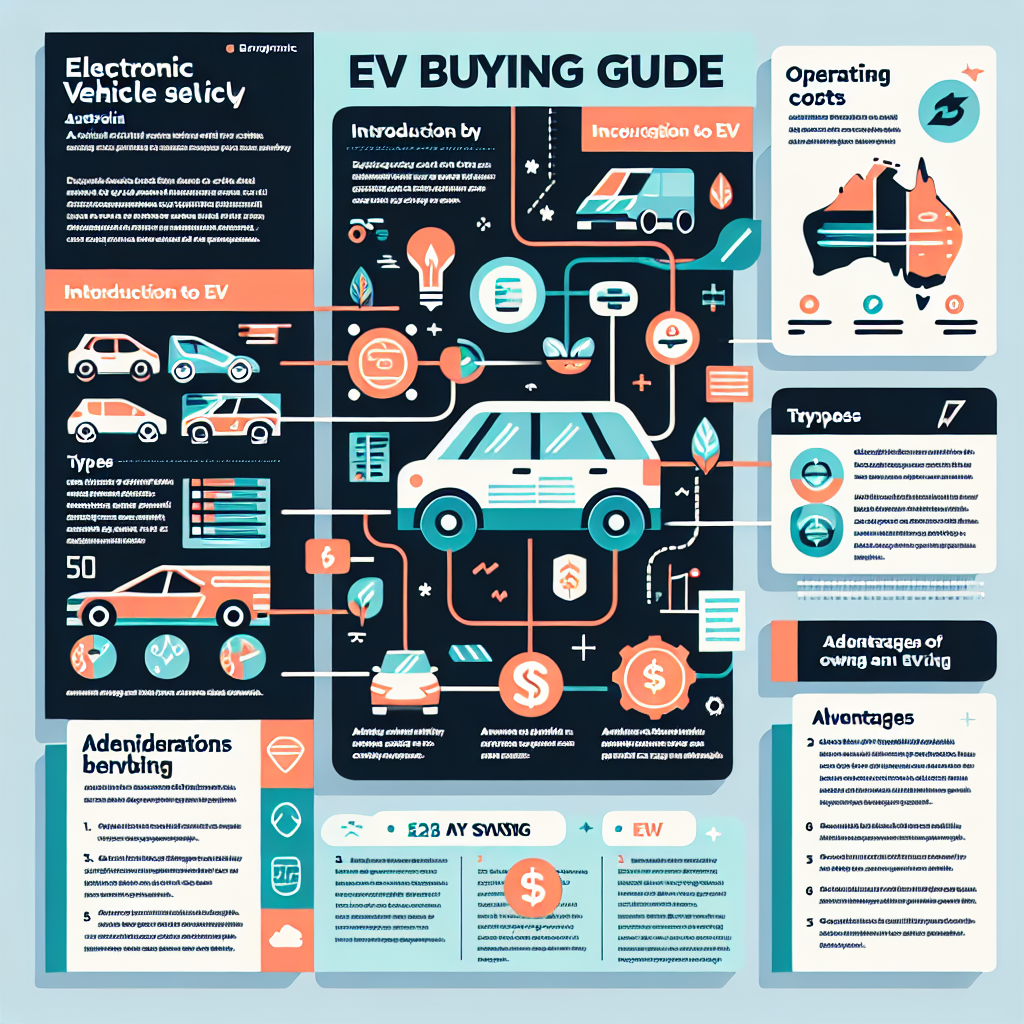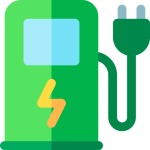
The electric vehicle transition in Australia has shifted from niche to mainstream. Greater model choice, improving total cost of ownership and evolving policy settings have brought more Australians within reach of EV ownership. But incentives remain patchwork: different rules at federal and state levels, changing eligibility windows, and a trend away from one-off rebates toward structural tax measures and targeted programs.
This guide provides an up-to-date, practical overview of the incentives available across Australia as they stand today, what matters most when you’re buying, and how to avoid common pitfalls. Always confirm details with the relevant state revenue office or the Australian Taxation Office (ATO) before you buy – program parameters, thresholds and cut‑off dates change frequently.
The national game-changer: FBT exemption for eligible zero‑emission vehicles
At the federal level, the most consequential incentive for many buyers is the Fringe Benefits Tax (FBT) exemption for eligible zero‑emission vehicles.
What it is and why it matters
- The federal Electric Car Discount (FBT exemption) removes FBT on eligible Battery Electric Vehicles (BEVs) and Hydrogen Fuel Cell Electric Vehicles (FCEVs) provided to employees via a novated lease or a company car arrangement. FBT can be a very large cost when applied to private use of a work vehicle, so exemption often translates into tens of thousands of dollars in savings over a lease term.
- For employees with access to a novated lease through their employer, the FBT exemption is frequently the single biggest factor in making an EV cheaper than a comparable petrol car on a post‑tax basis.
Eligibility highlights (current as published)
- Vehicle type: Applies to BEVs and FCEVs.
- Plug‑in hybrids (PHEVs): The FBT exemption for PHEVs ended on 1 April 2025. Existing leases entered into and settled before that date may be grandfathered for the remainder of the agreement, but new PHEV novated leases or company car arrangements no longer qualify.
- Date and value tests: The vehicle must have been first held and used on or after 1 July 2022 and must fall below the Luxury Car Tax (LCT) threshold for fuel‑efficient vehicles as at its first retail sale. The LCT threshold is indexed and was about $91,387 for FY2024/25 – check current ATO guidance for the latest figure.
- Associated costs: Where packaged correctly as a benefit, some running costs (registration, insurance, maintenance and charging) can also be excluded from FBT.
Why you should prioritise FBT if it’s available
- If your employer offers a novated lease, run the numbers with a salary packaging specialist. The federal FBT exemption often outstrips state cash rebates or stamp duty savings and will usually determine whether an EV is financially attractive.
State and territory incentives: what’s available now
Below is a concise, state‑by‑state snapshot reflecting recent policy shifts. Many outright purchase rebates have been wound back in favour of targeted concessions, infrastructure spending and tax measures. Always check current program terms and eligibility dates for each state.
Australian Capital Territory (ACT)
- Loans: Interest‑free loans of up to $15,000 under the Sustainable Household Scheme for eligible EVs (subject to value caps) or for home charging equipment.
- Registration and duty: Discounted registration and discounted motor vehicle duty for eligible low‑emission vehicles remain in place, though prior regimes offering free registration or blanket stamp duty exemptions have been scaled back since mid‑2024.
- Notes: The ACT remains one of the more supportive jurisdictions for EV households, particularly for home infrastructure assistance.
New South Wales (NSW)
- Major purchase incentives such as the $3,000 rebate and stamp duty exemption ended on 1 January 2024. Buyers who paid a deposit prior to that date might still be eligible for transitional refunds – check Service NSW guidance.
- Incentives now tilt toward fleet support and infrastructure programs rather than broad consumer rebates.
Northern Territory (NT)
- Stamp duty concession: Up to $1,500 for eligible BEVs and PHEVs on vehicles valued up to $50,000, available until 30 June 2027 under current arrangements.
- Registration: Up to five years of free registration for qualifying vehicles.
- Charging: Grants of $1,000 for eligible residential EV charger installations.
- Notes: The NT continues to prioritise uptake through ongoing concessions and modest charger grants.
Queensland (QLD)
- The Zero Emission Vehicle Rebate Scheme closed in September 2024.
- Registration and stamp duty: Concessions and lower duty rates apply to EVs and hybrids – for registration discounts, caps and eligibility conditions typically reference a dutiable value threshold (for example, under $100,000). Confirm the current dutiable value thresholds and discount amounts with Queensland Transport and Main Roads.
- Notes: QLD has pivoted away from upfront subsidised rebates to ongoing cost differentials and fleet incentives.
South Australia (SA)
- The $3,000 consumer rebate ended on 31 December 2023.
- Registration relief: Eligible new BEVs and FCEVs registered before 1 July 2025 may qualify for a three‑year exemption from registration fees under the state’s transitional measures.
- Notes: SA focuses on targeted registration relief and infrastructure investment.
Tasmania (TAS)
- The $2,000 EV Rebate Program and the stamp duty waiver ended in 2023. There are currently no active state‑level purchase rebates or household loan schemes, though incentives for business and fleet adoption or local infrastructure projects may be available.
Victoria (VIC)
- The $3,000 EV subsidy concluded in mid‑2023. Victoria also ended its proposed EV road user tax in 2023 and now offers other supports.
- Registration: A modest annual rebate (for example, $100) has been available as an offset for EV owners; confirm current eligibility and payment arrangements with VicRoads.
- Notes: Victoria’s policy direction has favoured broader transport decarbonisation measures and charging infrastructure over direct consumer subsidies.
Western Australia (WA)
- The $3,500 Zero Emission Vehicle Rebate Scheme reached its cap and closed on 10 May 2025 (or earlier, when the program limit of 10,000 vehicles was reached).
- Other incentives: At present, WA does not have broad ongoing tax exemptions or registration discounts in the same way some other states do – check Department of Transport WA for any small‑scale or local programs.
How incentives are evolving – policy and market signals
In many states, direct purchase rebates have been wound down or sunsetted. Governments appear to be shifting resources to:
- Tax and salary packaging measures (nationally, the FBT exemption is the central example).
- Charging infrastructure (public fast chargers and residential/home charger grants in some jurisdictions).
- Fleet transition support and local planning measures that prepare broader transport systems for electrification.
This reflects market maturity – as more affordable EVs come to market and uptake rises, direct subsidies are being replaced by structural measures designed to sustain long‑term demand and enable charging access.
Practical checklist for prospective EV buyers in Australia
Confirm the vehicle’s eligibility dates and price cap
- Check whether the vehicle’s “first held and used” and first retail sale dates meet federal and state thresholds.
- Verify the LCT/fuel‑efficient vehicle threshold that applies to the federal FBT test and any state price caps.
If you have access to a novated lease, run the numbers early
- The FBT exemption can dramatically change the outcome. Use a salary packaging calculator and seek employer HR or payroll advice.
Document your purchase and deposit dates carefully
- Many state programs determine eligibility by deposit date, invoice date or registration date. A small timing difference can cost thousands.
Check whether incentives stack
- In some cases state and federal measures can be combined; in others they cannot. Confirm stacking rules (eg, FBT + state stamp duty concession may be possible, but check specifics).
Understand used EV rules
- Many state and federal incentives apply only to new vehicles or vehicles first held and used after a specified date. Used imports and older second‑hand EVs are frequently excluded from consumer rebate schemes.
Factor infrastructure and ownership costs into your decision
- Compare running costs (electricity vs petrol), available home charging incentives, public charging networks in your area and potential maintenance differentials.
Claiming and paperwork
- Keep sales contracts, deposit receipts, delivery paperwork and any novated lease documentation. Claim processes vary: some require dealer lodgement, others require owner application to a state agency.
Conclusion
Australia’s EV incentive landscape is now a mix of national tax measures, state concessions and targeted infrastructure support. The federal FBT exemption for eligible zero‑emission vehicles remains the most significant cost lever for employees with novated leasing options, while states continue to provide a patchwork of concessions and time‑limited programs.
The broader trend is clear: as the EV market matures, many jurisdictions are moving away from universal upfront rebates to longer‑term structural support – charging infrastructure, fleet incentives and tax settings that embed EVs into everyday mobility. For buyers, the key is preparation: verify eligibility dates, confirm value caps, and run the numbers on novated leases early. Proper planning can save thousands and make the switch to electric both environmentally and financially sensible.
Frequently asked questions
How do I check whether a specific EV qualifies for the federal FBT exemption?
Confirm the vehicle is a BEV or FCEV, that it was first held and used on or after 1 July 2022, and that its first retail sale price was below the LCT threshold for fuel‑efficient vehicles at the time. Ask your dealer for the vehicle’s first retail sale documentation and consult the ATO’s guidance or your employer’s novated lease provider to verify eligibility.
Are plug‑in hybrid vehicles (PHEVs) still eligible for FBT exemption?
No – the FBT exemption for PHEVs ended on 1 April 2025. Leases or company car arrangements entered into and settled before that date may be grandfathered, but new PHEV arrangements no longer qualify at the federal level.
Can I combine state rebates or stamp duty concessions with the federal FBT exemption?
Possibly, but it depends on the state program and whether the benefit applies to salary‑packaged vehicles. Some state concessions (for example, motor vehicle duty reductions) can be combined with federal FBT relief, but you must check stacking rules with the state revenue office and the ATO for your specific circumstances.
Do incentives apply to used electric vehicles?
Most consumer rebates and new‑vehicle purchase incentives apply only to new vehicles or those first held and used after a stated date. Used and imported second‑hand EVs are often excluded. For federal FBT purposes, the “first held and used” date matters; a used vehicle whose first use predates the eligibility window will not qualify.
What documents should I keep to claim a state rebate or FBT exemption?
Keep the sales contract, tax invoices, deposit receipts, delivery paperwork, vehicle first retail sale documentation, registration papers and any novated lease or employer benefit paperwork. Some state programs require the dealer to lodge claims; others require owner applications – retain originals in case of audit.
Are there incentives for home chargers or public charging installation?
Some jurisdictions and local councils offer grants or interest‑free loans for home chargers (the ACT and NT have provided such support). Federal and state programs continue to evolve to support charging infrastructure; check your state government or local council websites for current offerings.
Where can I find authoritative, up‑to‑date information before I buy?
Primary sources are your state or territory revenue office, the ATO (for FBT and LCT matters), and your employer’s salary packaging or payroll team if you’re considering a novated lease. Dealers can assist with paperwork, but always verify eligibility and deadlines yourself with the relevant government agency.
About EV Evolution
EV Evolution is the leading online platform dedicated to Australian electric vehicle owners and enthusiasts. We foster a vibrant community, delivering essential EV news and insights, and enhancing user engagement through our innovative, AI-powered chatbot for dynamic discussions. Our mission is to empower Australian electric vehicle owners and enthusiasts by fostering a vibrant, AI-driven online community that connects, informs, and advances the nation’s electric vehicle landscape.




 and then
and then 